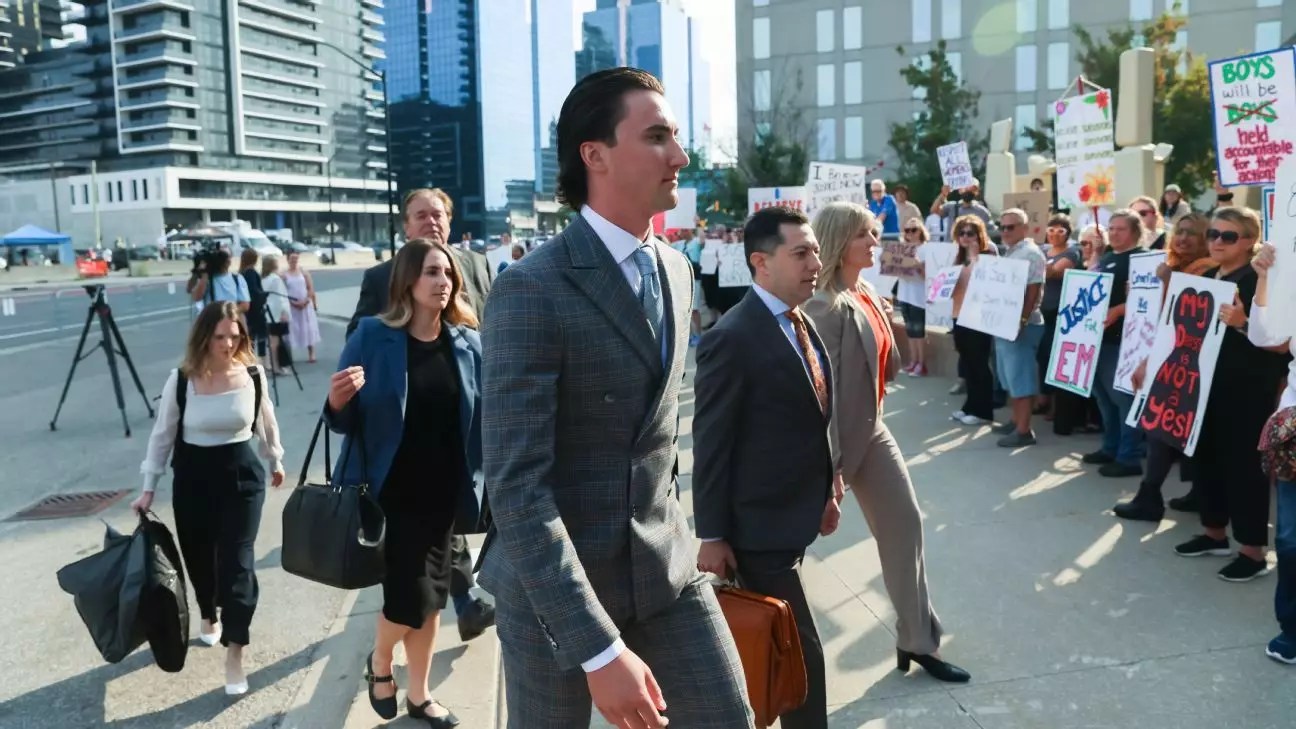The recent acquittal of five prominent hockey players on serious allegations underscores a critical tension within the realm of justice and public perception. While the legal system has spoken decisively—declaring the players not guilty—the ripple effects extend far beyond the courtroom. This case highlights the pivotal role of credibility, the influence of societal narratives, and the ongoing battles athletes face when their reputation is scrutinized in the court of public opinion. It prompts us to reconsider how justice is delivered, interpreted, and sometimes, misunderstood in environments driven by sensationalism.
The court’s decision rested heavily on the credibility of the complainant’s testimony. Justice Carroccia’s assessment illuminated a fundamental principle of justice: evidence must be reliable and consistent. Her detailed evaluation revealed significant doubts about the veracity of the allegations, especially noting inconsistencies and exaggerations in the account. Such scrutiny reminds us that in legal proceedings, the burden rests on the accuser’s ability to present a reliable narrative; otherwise, doubts remain, regardless of societal outrage or media pressure. The ruling affirms that in the justice system, facts and credibility hold supreme authority over emotional appeals or assumed guilt by association.
However, the aftermath reveals a society grappling with its own biases. While the law considers the evidence, the NHL and public commentators are left to navigate complex ethical questions. The league’s initial decision to suspend the players reflects a cautious approach driven by the severity of the allegations, yet it also raises concerns about due process. Such actions, based on pending legal outcomes, can stigmatize individuals even before a verdict is reached. The NHL Players’ Association’s stance demonstrates a belief in fairness and the right to rehabilitate one’s reputation—values that seem increasingly sidelined in the age of instant judgments.
Furthermore, this case exposes the dichotomy between legal justice and societal justice. The players, now acquitted, are still under the shadow of suspicion—an almost impossible dilemma for athletes whose careers depend heavily on public trust. The league’s ongoing review symbolizes a broader struggle: how to uphold justice while safeguarding the rights and futures of those accused. It’s a stark reminder that institutions often face uncomfortable choices, balancing accountability with fairness, especially in high-profile cases that attract intense media scrutiny.
At its core, this situation spotlights the importance of credibility and how fragile it can be. For young athletes, the stakes are incredibly high—their careers, mental health, and personal lives hang in the balance. Society must critically evaluate the standards we uphold and recognize the complexity of justice in the modern era. While we desire quick resolutions, genuine fairness demands patience, thorough investigation, and an unwavering commitment to truth. Only then can we ensure that justice is not only done but seen to be done — a principle that benefits everyone, especially those whose lives are forever altered by accusations and verdicts that echo far beyond the courtroom.

